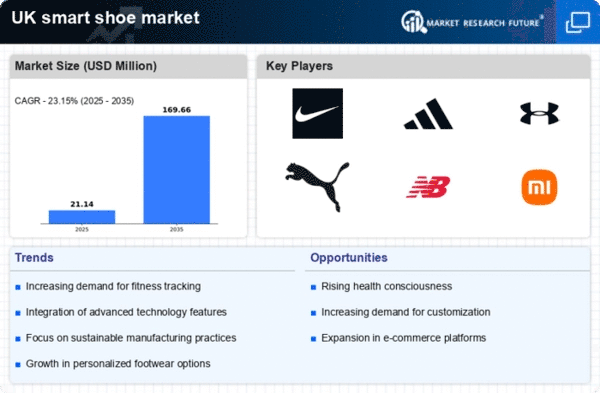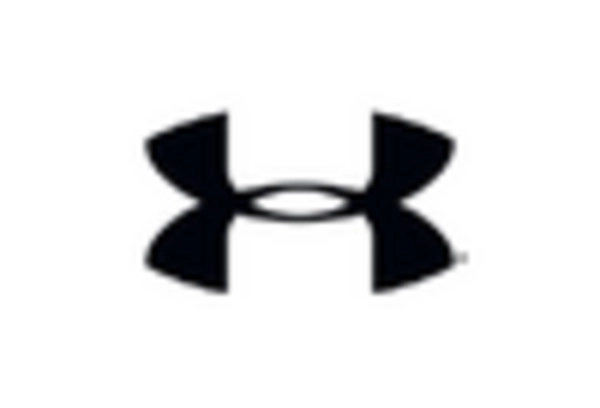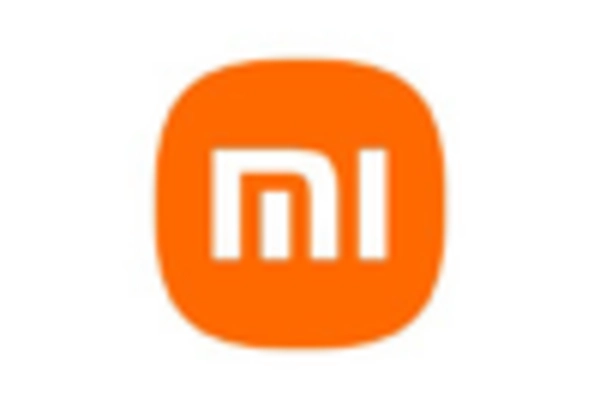Rising Health Awareness Among Consumers
In the UK, there is a growing trend of health awareness among consumers, which is significantly impacting the smart shoe market. As individuals become more focused on fitness and well-being, the demand for products that support an active lifestyle is increasing. Smart shoes that offer features such as step tracking, calorie counting, and posture correction are becoming increasingly popular. According to recent surveys, approximately 60% of UK consumers express interest in footwear that can monitor their health metrics. This shift in consumer behavior suggests that the smart shoe market is likely to expand as brands align their offerings with the health-conscious mindset of the population. The integration of health monitoring features into footwear is expected to attract a broader audience, further driving market growth.
Technological Advancements in Wearable Tech
The smart shoe market is experiencing a surge due to rapid technological advancements in wearable technology. Innovations such as integrated sensors and connectivity features are enhancing user experience and functionality. In the UK, the market for wearable technology is projected to grow at a CAGR of 15% from 2025 to 2030. This growth is likely to drive demand for smart shoes that offer features like fitness tracking, navigation, and health monitoring. As consumers become more health-conscious, the appeal of shoes that can provide real-time data on physical activity and health metrics is increasing. Consequently, the smart shoe market is positioned to benefit from these technological trends, as manufacturers invest in research and development to create more sophisticated products that meet consumer expectations.
Increased Investment in Smart Footwear Startups
The smart shoe market is witnessing a notable increase in investment directed towards startups focused on smart footwear. In the UK, venture capital funding for wearable technology startups has seen a rise of over 25% in the past year. This influx of capital is enabling innovative companies to develop cutting-edge smart shoes that incorporate advanced features such as biometric sensors and AI-driven analytics. As these startups bring new products to market, competition is likely to intensify, leading to a wider variety of options for consumers. The growing interest from investors indicates a strong belief in the potential of the smart shoe market, suggesting that the industry will continue to evolve rapidly as new technologies are introduced.
Growing Influence of Social Media and Influencers
The smart shoe market is being significantly shaped by the growing influence of social media and online influencers. In the UK, social media platforms are becoming key channels for marketing and promoting smart footwear. Influencers who advocate for fitness and lifestyle products are effectively reaching a large audience, thereby driving consumer interest and engagement. Approximately 55% of UK consumers report that social media influences their purchasing decisions, particularly in the fashion and footwear sectors. This trend suggests that brands in the smart shoe market must leverage social media strategies to enhance visibility and attract potential customers. As influencer marketing continues to evolve, it is likely to play a crucial role in shaping consumer perceptions and driving sales in the smart shoe market.
Consumer Demand for Customization and Personalization
The smart shoe market is increasingly influenced by consumer demand for customization and personalization. UK consumers are seeking products that reflect their individual styles and preferences, which is prompting manufacturers to offer customizable features in smart shoes. This trend is evident in the rise of brands that allow customers to select colors, materials, and even functionalities tailored to their needs. Research indicates that around 70% of consumers in the UK are willing to pay a premium for personalized products. This inclination towards bespoke footwear is likely to drive innovation within the smart shoe market, as companies strive to meet the diverse demands of their customer base, thereby enhancing brand loyalty and market share.
















